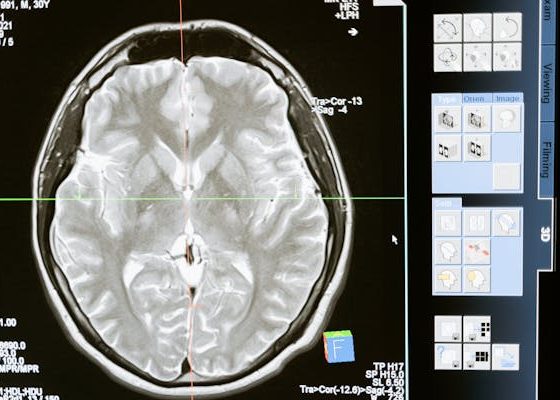
In the modern world, technology plays a pivotal role in shaping every aspect of our lives. From the way we communicate to the way we work, learn, and entertain ourselves, technology is at the forefront of human progress. This article delves into the myriad reasons why technology is important, exploring its profound impact on society, the economy, education, healthcare, and various other domains.
Why Technology is Important?
Technology, defined as the application of scientific knowledge for practical purposes, has been a driving force behind human advancement. It encompasses a vast array of tools, systems, and methods that have been developed to solve problems and enhance human capabilities. In today’s digital age, the importance of technology cannot be overstated. It is a fundamental component of modern life, influencing nearly every aspect of our existence.
The Importance of Technology in Communication
One of the most significant ways technology has transformed our lives is through communication. The advent of the internet, smartphones, and social media platforms has revolutionized the way we connect with others. Gone are the days when communication was limited to face-to-face interactions or telephone calls. Today, we can communicate instantly with anyone, anywhere in the world.
Global Connectivity: Technology has bridged geographical gaps, enabling people from different parts of the world to connect and share information. Social media platforms like Facebook, Twitter, and Instagram allow individuals to maintain relationships, share experiences, and stay informed about global events.
Efficiency and Speed: Email, instant messaging, and video conferencing have made communication faster and more efficient. Businesses can conduct meetings, collaborate on projects, and communicate with clients in real-time, regardless of location.
Access to Information: The internet is a vast repository of information. Search engines like Google have made it easy to access knowledge on any topic, fostering a culture of continuous learning and informed decision-making.
The Role of Technology in Education

Education is another domain where technology has made a profound impact. The integration of technology in education has transformed the way we teach and learn, making education more accessible, engaging, and effective.
E-Learning and Online Courses: The rise of e-learning platforms like Coursera, Khan Academy, and Udemy has democratized education. People can now access high-quality courses from prestigious institutions without the need to attend physical classes. This has opened up opportunities for lifelong learning and skill development.
Interactive Learning Tools: Technology has introduced interactive tools such as smartboards, educational apps, and virtual reality (VR) experiences that make learning more engaging and interactive. These tools cater to different learning styles and help students grasp complex concepts more easily.
Accessibility and Inclusivity: Technology has made education more inclusive by providing tools for students with disabilities. Screen readers, speech-to-text software, and adaptive learning technologies ensure that all students have equal access to educational resources.
Technology in Healthcare
The healthcare sector has benefited immensely from technological advancements. Technology has improved patient care, enhanced diagnostic accuracy, and streamlined healthcare processes.
Telemedicine: Telemedicine has revolutionized healthcare delivery, especially in remote areas. Patients can now consult with doctors via video calls, reducing the need for travel and making healthcare more accessible.
Medical Imaging and Diagnostics: Advances in medical imaging technologies such as MRI, CT scans, and ultrasound have improved the accuracy of diagnoses. Early detection of diseases leads to better treatment outcomes.
Electronic Health Records (EHRs): EHRs have digitized patient records, making it easier for healthcare providers to access and share patient information. This leads to better coordination of care and reduces the risk of medical errors.
Wearable Technology: Wearable devices like fitness trackers and smartwatches monitor vital signs and health metrics, empowering individuals to take charge of their health. These devices can also alert users to potential health issues before they become serious.
Economic Impact of Technology
Technology is a major driver of economic growth and development. It has transformed industries, created new markets, and changed the way businesses operate.
Innovation and Entrepreneurship: Technology fosters innovation by providing the tools and platforms needed to develop new products and services. Startups and entrepreneurs leverage technology to disrupt traditional industries and create new business models.
Productivity and Efficiency: Automation and artificial intelligence (AI) have increased productivity and efficiency in various sectors. From manufacturing to logistics, technology streamlines processes, reduces costs, and improves output quality.
Job Creation: While technology has automated certain tasks, it has also created new job opportunities. The tech industry itself is a significant employer, and there is a growing demand for professionals with skills in areas such as software development, data analysis, and cybersecurity.
Technology and Society
The influence of technology on society is profound and multifaceted. It shapes our cultural norms, influences social interactions, and drives societal change.
Social Change: Technology has been a catalyst for social change, empowering movements for social justice, human rights, and political activism. Social media platforms provide a voice to marginalized communities and facilitate the organization of grassroots movements.
Entertainment and Media: The entertainment industry has been transformed by technology. Streaming services like Netflix, Spotify, and YouTube provide on-demand access to a vast array of content, changing how we consume media.
Smart Cities: The concept of smart cities leverages technology to improve urban living. Smart grids, IoT devices, and data analytics enhance infrastructure, reduce energy consumption, and improve public services.
The Future of Technology
Looking ahead, the importance of technology will only continue to grow. Emerging technologies such as artificial intelligence, blockchain, and quantum computing hold the potential to revolutionize various aspects of our lives.
Artificial Intelligence (AI): AI is poised to transform industries by automating complex tasks, enhancing decision-making, and creating new opportunities for innovation. From self-driving cars to personalized medicine, AI applications are vast and varied.
Blockchain: Blockchain technology promises to enhance security, transparency, and trust in various sectors. Its applications range from secure financial transactions to transparent supply chain management.
Quantum Computing: Quantum computing has the potential to solve problems that are currently intractable with classical computers. This could lead to breakthroughs in fields such as cryptography, materials science, and drug discovery.
Conclusion
The importance of technology in our lives cannot be overstated. It has revolutionized communication, education, healthcare, the economy, and society as a whole. As we continue to innovate and develop new technologies, their impact will only deepen, shaping the future in ways we can only begin to imagine. Understanding why technology is important? It is crucial for navigating the challenges and opportunities of the digital age. Embracing technological advancements while addressing their ethical and societal implications will be key to building a sustainable and inclusive future.














